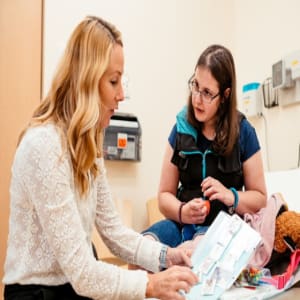“Autism Thinking”: Understanding the Core Characteristics of ASD while Offering Support (3HR)
Participants will be informed of the neurodevelopmental characteristics of ASD while covering executive functioning, context blindness, theory of mind, central coherence, joint attention, and one-channel processing (montropism). Explore sensory integration with self-regulation, independent work systems, visual strategies to foster independence, social stories, and positive behavior supports. Participants will identify and respond appropriately to various levels of crisis behaviors while learning to manage their emotional responses to distress behavior as maximizing the safety of self and others is key.
Upon completion of this training, participants will be able to:
- Understand autism and its impact on development.
- Understand the needs, characteristics, and strengths of individuals with autism and apply them to intervention strategies when working with clients.
- Interpret distress behaviors and address the cause of the behavior to de-escalate the situation.
- Use communication skills to be supportive and strengthen interventions to de-escalate potential conflict situations.
Social workers completing this course receive 3 Clinical asynchronous continuing education credits.
For other board approvals, this course qualifies for 3 hours of Clinical, Evidence-Based Practices, and General Skill Building continuing education training.
Course Instructor: Tonya Logan, LICSW and LCSW-C
Recording Date: 3/02/2024



